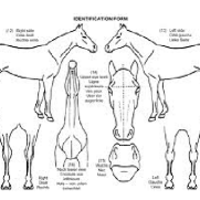Stories of Animal Passports
Tracing Disease, Movements, and Identities
DOI:
https://doi.org/10.52537/humanimalia.9965Abstract
Like us, some kinds of animals require passports to enable movements across national borders. Passports tell all kinds of multispecies stories, in which humans and nonhumans are entangled in myriad ways. But what is a passport — human or nonhuman? What kind of symbolic, legal, material, relational identity and not least control and disciplinary work do they “do”? The article departs from autoethnographical notes in a European context, and discusses these questions in dialogue with animal studies literature and actor network theory.
So, what kinds of stories do passports tell? In the article, the authors consider first what role passports serve, and then analyze their function, in various forms of surveillance — around disease and global bio-security, around mobility/travel, and around identities. Finally, some issues raised about technologies of identification, and what these say about identity and belonging, particularly with respect to human-animal relationships, are discussed. For all that these passports signify human-animal separation, they also signify the shared, mobile enmeshment of humans and animals in citizenship as well as social life.
Downloads

Published
Issue
Section
License

This work is licensed under a Creative Commons Attribution-NonCommercial 4.0 International License.









